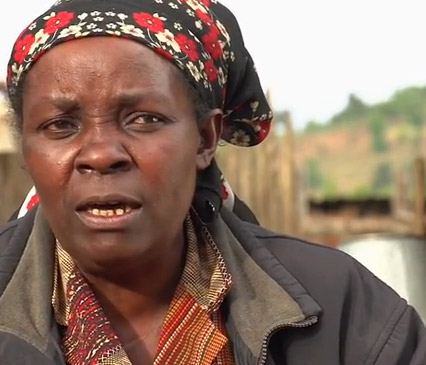Post-harvest management and gender
Page Content

Post-harvest management has the potential to improve the situation of women as it can lead to ...
-
reduced workload in the household
Housekeeping chores are reduced. Women spend - for example - less time shucking and shelling corn. -
more control over the harvest
Without reliable storage possibility, men often sell the grain right after the harvest. On farm storage - often managed by women - gives the farmers more flexibility to sell the right quantity at the right time. -
reduced stress to meet food needs
With stored grain readily available for household consumption year-round, the stress to buy food in times of scarcity is reduced. -
new income opportunities
The possibility to sell stored grain at better prices can allow farmers to invest in all kind of income-generating activities. One of them is the production of metal silos. Farmers can work as artisans, once they have recieved proper training. Examples from Central America show, that this is a good business opportunity for women. -
improved status
These effects combined can lead to a significant improvement of the status of women in the rural community.
 "This technology is very good because it cuts down on the food preparation process. The maize from the silo is safe even for our children to handle.
"This technology is very good because it cuts down on the food preparation process. The maize from the silo is safe even for our children to handle.
Storing the grain is very important. Because you can later sell it at a better price. If I combine this with other income generating activities I will have money for my household needs, and I will only sell maize when I choose to, and at the price that I decide."
(Florence Wangui Kamonjo, Kenyan maize farmer)
back to context
